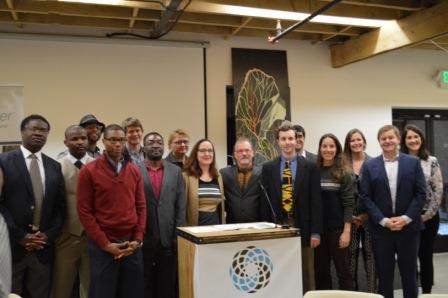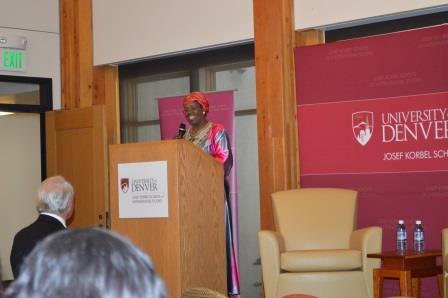Perceptions: A Look Towards the U.S.–Africa Leaders Summit

From August 4 to 6, more than 40 heads of state and governments from across Africa will gather in Washington D.C. for the U.S. Africa Leaders summit.
Organized by the U.S. government, we are told, ‘President Obama invited all African heads of state or government in good standing with the United States and the African Union to attend the U.S.-Africa Leaders Summit. An invitation was also extended to the African Union Chairperson.’
A statement from the White House said:
‘This Summit, the largest event any U.S. President has held with African heads of state and government, will build on the President’s trip to Africa in the summer of 2013 and it will strengthen ties between the United States and one of the world’s most dynamic and fastest growing regions’
The Real Africa, according to David Brooks
As we wait to see and learn more, the question on my mind is–have impressions about the continent in the U.S. and around the world really changed for good? What is the U.S. media establishment saying about the continent?
What would Americans be thinking and saying about the continent when these leaders gather in Washington D.C.? Its important because that perception, oftentimes translates into attitudes and to decisions that impact change on the continent.
From some recent newspaper headlines, editorials, conversations, it appears the worldview about the continent, backed with facts, may have changed, if not shifting. And that is good news.
For example, in May, David Brooks, an influential columnist for the New York Times and scholar with the Brookings Institution, penned The Real Africa. What is he trying to tell us?
Is this something we don’t already know or is he merely frustrated about the African narrative in other quarters? Is this a shout from the roof top? Does the average person understand what is taking place in Africa today? How can they participate in it?
Brooks did not put out any call for action, except to expose fallacies about the continent.
In The Real Africa, he writes, ‘The main story in Africa is an impressive surge of growth, urbanization and modernization, which has sparked panic in a few people who don’t like these things.’
He goes on to caution, ‘Africa should not be seen as merely the basket case continent where students, mission trips and celebrities can go to do good work. It has become the test case of 21st-century modernity. It is the place where the pace of modernization is fast, and where the forces that resist modernization are mounting a daring reaction.’
A couple of really interesting things popped out the entire column.
Brooks talks about ‘distortions’, ‘opposites of the truth’, resistance to progress being made in the continent and ‘clashes’ over pluralism, human development and governance. Against the backdrop of the new ‘elephant in the room’, Boko Haram, the idea is that some people don’t like to see the continent make progress, as it is doing today.
Change has ‘sparked panic in a few people who don’t like these things’ and the ‘forces that resist modernization are mounting a daring reaction,’ he tells us. Brooks does not name names, which leaves us to guess where resistance to African growth and development may be coming from.
If political systems in Africa are ‘becoming marginally less dysfunctional’ and if ‘Many Africans are trying to replace old practices with competent governance’ why are we so fascinated with Boko Haram when ‘it is not the main story in Africa or even Nigeria’
Could it be the people who are resisting change want Boko Haram, Joseph Kony et al, to remain the dominant forces there? And why?
Who benefits from a U.S. Africa Leaders Summit?
The stakes are certainly different and for a short moment U.S. national attention will be pulled away from domestic matters and other hot-button issues to—Africa.
Another question in mind is–will the leaders be asking for more money from the U.S. for projects back home? Or is this a real opportunity to engage about the next generations of Africans, besides talk about assistance. Is this a different kind of summit?
Is the continent a real force to reckon with in the twenty first century? Is the continent being taken seriously for what it is today?
Ahead of the event, conversations have been taking place on the subject. So I am sharing more links, news, and other resources related to this historic event.
From the White House
A program of events and other side events related to this have been made public.
More…
From the Brookings Institution
The U.S.-Africa Leaders Summit: A Focus on Foreign Direct Investment
More…
From the National Endowment for Democracy
Conversation about the U.S.-Africa Leaders Summit
More…




